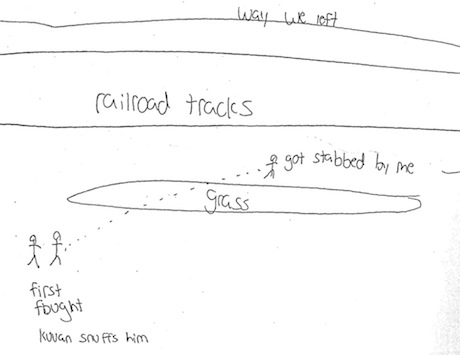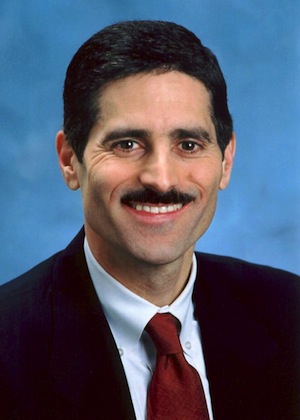Just before midnight on November 8, 2008, a group of seven Long Island teens drove to the Village of Patchogue, looking for Latinos to assault.
Astonishingly, interviews would later show that "beaner hopping," as it was known in the group, was a relatively pedestrian pastime among area thugs, and had been going on for years. Teens, some fueled by the upper-downer combo of adrenaline and alcohol, would seek out people who they perceived to be Latino, people who they might have assumed, had they been listening to local politicians or bigoted relatives, were in the country illegally and didn't belong in Suffolk County.
This night, however, would stand out from the rest.
At the Patchogue railroad station, the group encountered two Ecuadorian immigrants, 37-year-old Marcelo Lucero, who worked at a dry cleaning shop, and his friend Angel Loja, whom Lucero had known since his childhood in Ecuador. The teens attacked: words, blows, and a group effort to hem in Lucero, who tried to fight back by swinging his belt in the air.
One of the attackers, Jeffrey Conroy, pulled out a knife and stabbed Lucero. The then 17-year-old Medford resident recounted the moment in a statement given to police after being taken into custody:
His back was to me and as I ran towards him he turned to face me. He was about four or five feet from me, I continued to run towards him and stabbed him once in either his shoulder or chest.
The physical altercation ended when I stabbed the guy. I said to Nicky "Oh shit I am fucked [I] stabbed him" as I showed him the blood on my knife.
The attackers fled and Lucero crumpled to the ground as he waited with Loja for an ambulance to arrive. He died less than an hour later, shortly after arriving at Brookhaven Memorial Hospital Medical Center.

A sketch of the crime scene drawn by Jeffrey Conroy while in police custody after the stabbing.
(Credit: Long Island Wins)
The Lucero killing sent shockwaves across Long Island, generating hundreds of news stories and collective soul-searching that inspired community dialogues, a play, a novel, and a PBS documentary. Our organization, Long Island Wins, devoted months to following the trial and its aftermath.
How could this happen on Long Island, a place that had been populated over generations by Italian, Irish, and German immigrants, and has recently drawn newcomers from Southeast Asia, the Caribbean, and South and Central America -- a place that sits in the shadow of the Statue of Liberty?
Deputized, a new documentary about the Lucero killing, eschews easy answers to those questions. The film explores the crime from a multitude of angles, probing into the lives of the victim, the killer, and the social and political conditions that brought them together.
Deputized, or ¿Cómo Pudo Pasar?, as it's titled in Spanish, is fully bilingual and was produced and directed by Susan Hagedorn, a nurse turned filmaker and the daughter of the late Long Island philanthropist Horace Hagedorn. Over the three-year span of the filming, I occasionally offered background to their research team based on my trial reporting and work at Long Island Wins.
The documentary is the rawest and most comprehensive examination of the Lucero killing to date, providing intimate interviews with the Lucero family, as well as with Conroy and his father.
After the attack, Deputized moves chronologically. By May 2010, the fates of the attackers had been decided: Six of the teens pleaded guilty to gang assault; the seventh, Conroy, went to trial and was found guilty of first-degree manslaughter as a hate crime. He received the maximum sentence, 25 years in prison.
Marcelo Lucero's attackers had been brought to justice. But on Long Island, the issue was far from resolved. The seven teens had been involved in other attacks on Latinos, and such attacks were not unique to this group, according to area high school students. Yet in the year before the killing, Suffolk County only reported a single hate crime. Were victims reporting these crimes to police? If not, why? If so, why weren't the police investigating them?
But while residents raised questions, some Suffolk politicians, particularly then-County Executive Steve Levy, portrayed the killing as an aberration. If the crime had happened elsewhere, it would have been a "one-day story," Levy famously said.
Levy had good reason to hope the spotlight would pass. During his two terms in the county's highest ranking office, he had made immigration -- and demonizing undocumented immigrants -- a central part of his platform. In 2004, he proposed deputizing Suffolk sheriffs to act as immigration agents. In speeches, he ranted about children of undocumented immigrants, whom he labeled "anchor babies." He became a champion for hardline immigration policies, appearing as a guest on Lou Dobbs Tonight, not once, but twice.

Levy, who dropped his 2011 reelection campaign after allegations of improper fundraising tactics
In a report issued after the Lucero killing, the Southern Poverty Law Center called Levy the "enabler-in-chief": His attitudes set a precedent in Suffolk County where political rhetoric targeting immigrants became the norm, not the exception.
The political atmosphere is Suffolk County was only one part of the story. What other forces helped shape an environment where teens felt empowered to attack others based on their ethnicity? What role did schools play? More importantly, what role did parents play?
Deputized is a blitz of perspectives on a crime that was both vicious and vexing, and which left a community grasping for answers but perhaps afraid to unpack the deeper social forces that enabled the killing to occur. In the coming months, it would be great to see screenings of the film on Long Island, but in settings where residents will be able to have constructive and impactful dialogues.
For information about upcoming screenings (none are scheduled as of yet), visit the official website or the film's Facebook page.